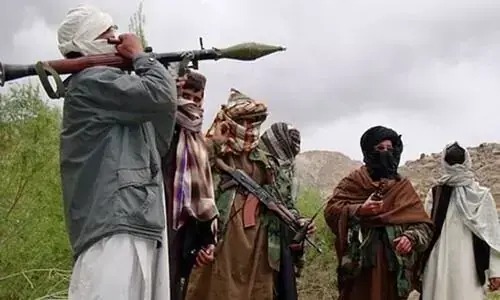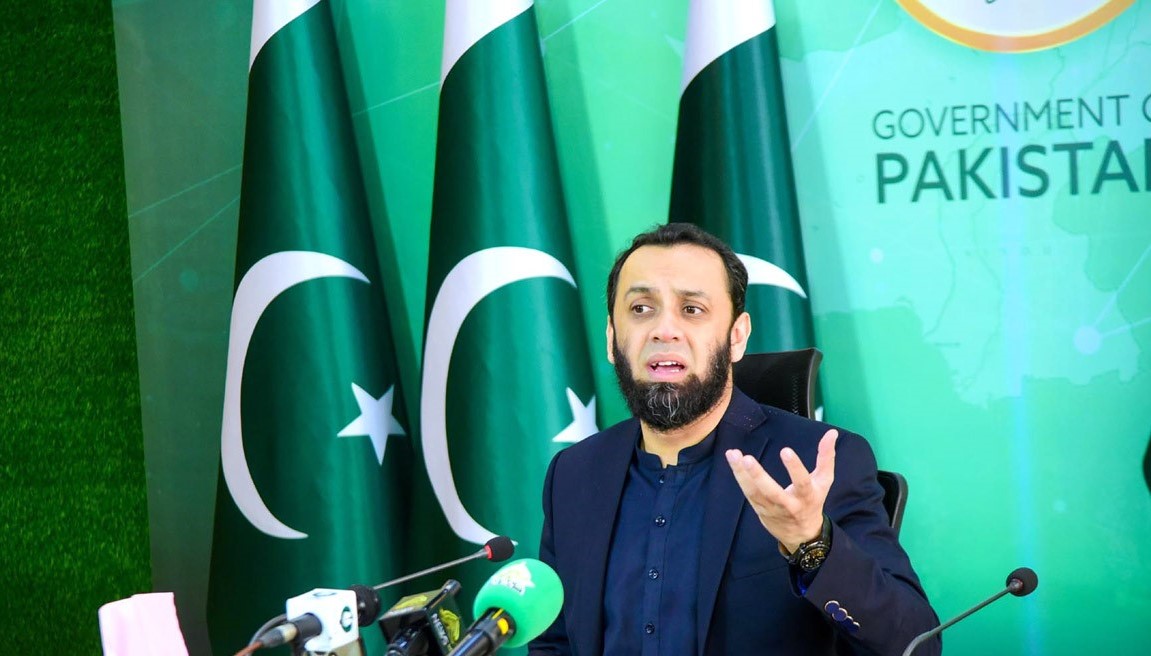ISLAMABAD (Big Digit) National Peace Message Committee established to stop terrorism, extremism
ISLAMABAD (Big Digit) To prevent the spread of terrorism and extremism, the federal government has established a sub-committee of the National Peace Message Committee to formulate a national narrative. Pakistan is facing a serious threat from extremism. The problem is that the political leadership, state institutions and public opinion in Pakistan are not completely united in combating this threat. Terrorism and extremism are a threat not only to Pakistan but also to the peace of the entire region. Some countries use terrorism for political purposes, the world no longer believes their narrative, we have undeniable evidence of the involvement of foreign hands in the Jaffar Express attack and Khyber Pakhtunkhwa and Balochistan. We clearly condemn all types of terrorism, including state terrorism. Pakistan has made immense sacrifices for the security and peace of the region in the war against terrorism. In this struggle, we have lost more than 90 thousand precious lives and suffered economic losses of more than 152 billion dollars.

The National Peace Message Committee will be responsible for formulating a nationally agreed narrative to combat extremism, terrorism, sectarianism, and hate speech, and will be headed by the Federal Minister for Information and Broadcasting. According to the notification issued by the Ministry of Information and Broadcasting for the formation of the sub-committee, the committee includes eminent scholars of different schools of thought, Mashaikhs, representatives of minorities and senior officials of the relevant ministries. Minority communities have also been given appropriate representation in the committee, coordinators of provincial and regional Peace Message Committees, representatives of approved madrasah boards, additional secretaries of the Ministry of Interior and the Ministry of Religious Affairs, and Director General Religious Education are also included in the committee. The Director General of Internal Publicity Wing of the Ministry of Information and Broadcasting will serve as the secretary of the committee. The committee will formulate detailed ToRs in its first meeting. The ToRs will be submitted for approval to the ‘National Committee on Narrative Building’.Pakistan wants to see peace in Afghanistan, a stable Afghanistan is not only in our interest but also in the interest of the entire region. Pakistan wants normal relations with all its neighboring countries. SCO leaders have issued a joint statement condemning the hijacking of the Jaffar Express train in Balochistan on March 11 and the bomb attack on a school bus in Khuzdar on May 21. SCO member states have pledged to intensify joint efforts to prevent the spread of extremist ideologies, religious intolerance, xenophobia, aggressive nationalism and ethnic and linguistic discrimination.Remember that militant groups rely on the media to spread their ideology, create fear, and achieve political goals, while media outlets often amplify militant narratives in their search for sensational news. Militant groups rely on media coverage to increase the psychological intensity of their actions, while media outlets view militancy as an attractive news story. Attacks are often carried out in locations that are symbolic or where maximum destruction can be caused in order to gain significant media coverage. The media, whether intentionally or unintentionally, gives terrorists the visibility they seek, and makes their operations more effective. Repeatedly broadcast news of extremism increases public fear and panic, which ultimately reinforces the terrorists’ goals. The way extremist attacks are presented in the media has a profound effect on public opinion. Sensational reporting can not only fuel fear and prejudice, but can also sometimes empower the narratives of militant groups. When the media only highlights the identity, religious or ideological affiliation of the attacker, rather than focusing on the context and real motivations of an attack, it deepens social divisions, which extremist groups exploit. Selective media reporting is also a major problem. Attacks by certain groups are given prominent coverage, while other militant acts are ignored, thereby presenting the reality of extremism in a biased way. The continuous and extensive coverage of militancy by the media has several unintended consequences. One of the greatest risks is ‘copycat terrorism’, in which individuals or groups, inspired by the militancy depicted in the media, attempt to repeat similar acts. Militant groups create highly frightening and provocative scenes to gain media attention in order to spread their organization’s narrative and inspire new recruits. Similarly, turning militant attacks into a sensational spectacle multiplies their psychological impact, and the tendency to portray the attackers as heroes can attract more militants. Continuous media coverage increases public pressure, forcing governments to take urgent measures against militancy.
 Sometimes, these hasty decisions prove ineffective or counterproductive, such as unnecessary military operations or strict security policies that can create further problems. When governments make emotional decisions under media pressure, it sometimes benefits the militants themselves, as unbalanced policies can further extremism in certain groups. In the digital age, the relationship between militancy and the media has become more complex, as extremist groups now have direct access to global audiences. Social media platforms, secret messaging apps, and video-sharing websites are providing extremist organizations with opportunities to spread propaganda, recruit people, and organize attacks. Unlike the media, where some degree of editorial oversight exists, more effective measures are needed to curb militant content on digital platforms. Today, militant groups adopt innovative digital strategies, such as viral content, specific hashtags, and the use of interactive media, to attract young people to extremist ideologies. The anonymity of the Internet has further fostered extremist narratives, and ideological extremism is being fueled in online groups and forums. To address this threat, strict laws, effective fact-checking systems, and cooperation between governments and technology companies are essential. This nexus of militancy and the media has become a serious problem in the era of 24-hour news cycles and digital media. While the media plays an important role in informing the public, it must also be mindful of the delicate balance where reporting does not unintentionally reinforce the ambitions of militants. Governments should also avoid emotional decisions that are made under pressure from the media. Urgent action is needed to prevent the spread of extremism on social media and other digital platforms. Responsible journalism, ethical reporting, and strict regulations for digital platforms can help prevent the further spread of militant narratives.
Sometimes, these hasty decisions prove ineffective or counterproductive, such as unnecessary military operations or strict security policies that can create further problems. When governments make emotional decisions under media pressure, it sometimes benefits the militants themselves, as unbalanced policies can further extremism in certain groups. In the digital age, the relationship between militancy and the media has become more complex, as extremist groups now have direct access to global audiences. Social media platforms, secret messaging apps, and video-sharing websites are providing extremist organizations with opportunities to spread propaganda, recruit people, and organize attacks. Unlike the media, where some degree of editorial oversight exists, more effective measures are needed to curb militant content on digital platforms. Today, militant groups adopt innovative digital strategies, such as viral content, specific hashtags, and the use of interactive media, to attract young people to extremist ideologies. The anonymity of the Internet has further fostered extremist narratives, and ideological extremism is being fueled in online groups and forums. To address this threat, strict laws, effective fact-checking systems, and cooperation between governments and technology companies are essential. This nexus of militancy and the media has become a serious problem in the era of 24-hour news cycles and digital media. While the media plays an important role in informing the public, it must also be mindful of the delicate balance where reporting does not unintentionally reinforce the ambitions of militants. Governments should also avoid emotional decisions that are made under pressure from the media. Urgent action is needed to prevent the spread of extremism on social media and other digital platforms. Responsible journalism, ethical reporting, and strict regulations for digital platforms can help prevent the further spread of militant narratives.








